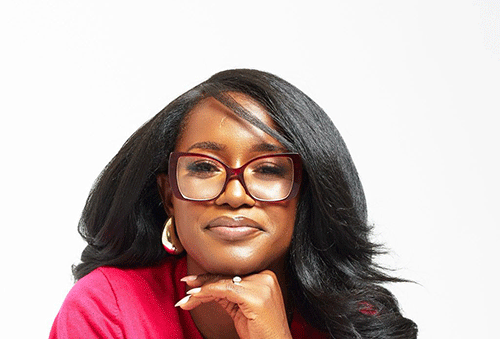Kavetja Ngaizuvare
Social media has become an undeniable part of our daily lives. It connects, entertains, and informs us, but beneath the polished filters and seemingly perfect lives, a much deeper reality lies.
The pressure to maintain a perfect version of life online has created unrealistic expectations, leading to anxiety, self-doubt, and comparison. At the same time, it can be a space for inspiration and self-expression.
Charisma Shekupe, a social media influencer, understands this struggle firsthand. She once felt the pressure to only share the best parts of her life but later realised that wasn’t the full story.
“Life is not perfect, and I wanted to create a space where people feel seen and understood,” she said. Though she has chosen to be more authentic, social media still pushes impossible standards. Influencers are often expected to maintain an image of perfection, and for many, this can take a lot. “People don’t see the work that goes into creating content planning, shooting, editing, and engaging with the community. It’s a full-time job, even on days when motivation is low,” she explained.
Beyond the content itself, there’s also an emotional burden that many don’t consider. “People forget that influencers are human too. When someone makes a bad comment about you, you’re expected to just ignore it, but the anxiety and breakdowns are real.”
Life coach and counsellor Suoma Andreas has seen the damaging effects of social media on self-esteem and mental well-being. “Social media is like a magnifying glass; it enlarges whatever you focus on. If you’re constantly consuming content that makes you feel less than others, your self-esteem will take a hit,” she said.
Many do not realise that what they see online is a highlight reel, not the full story.
“That picture-perfect marriage you admire? You don’t see the late-night fights. That successful entrepreneur? You don’t see the sleepless nights, the debt, or the breakdowns,” she added.
She believes that people have been conditioned to associate happiness with luxury and aesthetics when true happiness comes from meaningful connections and purpose.
Limited view
Nashilongo Nakale, founding president of the Internet Society, agrees that social media provides a limited view of reality. “Social media presents windows and frames in which people can showcase themselves. How real or embellished those portrayals are is up to the users to filter,” she stated. While social media has its downsides, she also believes it has created space for storytelling, art, and advocacy beyond just appearances. The challenge lies in how we engage with it.
Andreas suggests that to maintain a healthy relationship with social media, people should be intentional about what they consume. Unfollowing accounts that trigger self-doubt, setting time limits, and questioning the authenticity of what’s being presented can help create a more balanced perspective. “Influencers get paid to sell you a dream; you are comparing your reality to someone’s marketing campaign,” she said. She also encourages people to focus on their own lives instead of measuring themselves against others. “Comparison kills gratitude; instead of feeling bad about what you don’t have, ask yourself, ‘What do I actually want from life?’ Then work on building a life that works for you, not one that just looks good online,” she said.
Social media has also shaped how people view relationships. Many now expect grand romantic gestures, cute friendship dates, and picture-perfect families, leading to unrealistic expectations in real life. “Love is not just about Instagrammable dates. Friendships are not just about capturing content together, and parenting isn’t about creating a Pinterest-perfect childhood; when people start performing for social media instead of living in the moment, relationships suffer,” she stressed. Andreas recommends being more mindful to avoid falling into the trap of social media illusions. “Always ask yourself, what’s not being shown on social media? That dream vacation you’re jealous of? Maybe the person is in debt for it. That couple who looks so in love? Maybe they were fighting five minutes before posting.”
Recognising the gaps in what’s presented online can help people detach from the illusion of perfection.
There are also clear warning signs that social media is negatively affecting one’s mental health. Feeling anxious after scrolling, constantly comparing yourself to others, obsessing over likes, or feeling like your life is “boring” in comparison to what you see online are all red flags. Taking breaks, muting accounts that trigger insecurity, engaging with real-life experiences, and even seeking professional help can make a huge difference.
At its limit, social media is not the enemy; it is how we use it that determines whether it adds value to our lives or takes away from it. Setting boundaries, staying aware of the toxic nature of online content, and prioritising real-world connections can help create a healthier and more realistic perspective. As Andreas wisely put it: “Social media is not the enemy; our lack of boundaries with it is. Use it wisely, but don’t let it use you.”
-klngaizuvare@icloud.com



